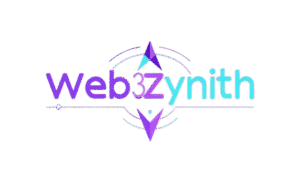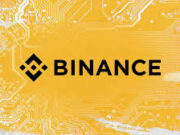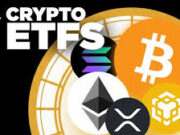In a landmark collaboration, African payments powerhouse Flutterwave has partnered with blockchain pioneer Polygon Labs to accelerate, simplify and radically reduce the cost of cross-border payments across the continent. The agreement marks a major leap in how companies pay and are paid across African borders. Here we walk through what this means, how it works, and the opportunities it opens up — all in plain language.
A new chapter in payments infrastructure
Flutterwave, founded in 2016 and one of Africa’s largest payment infrastructure providers, connects global businesses to African financial systems and processes more than US$ 40 billion across 34 countries. (TechCabal)
Polygon Labs is a blockchain software company whose technology enables low-cost, high-speed payments and real-world asset tokenization. By joining forces, the two organisations aim to build a payment solution that leverages blockchain (specifically stablecoins) to fix long-standing inefficiencies in cross-border flows. (CoinDesk)
What exactly is the partnership about?
- Flutterwave has selected Polygon as its default blockchain network for a new cross-border payments product. (Polygon Technology)
- The collaboration is multi-year and built around using stablecoins (cryptocurrencies pegged to fiat currencies like the U.S. dollar) to settle transactions. (Techpoint Africa)
- The rollout is phased: initially targeting enterprise customers (such as multinationals like Uber) in 2025, followed by a wider consumer launch in 2026 via Flutterwave’s Send App. (TechCabal)
- The service will be available in over 30 African countries through Flutterwave’s existing network. (TechAfrica News)
The status quo: Why traditional cross-border payments struggle in Africa
Cross-border payments in many African markets today suffer from major obstacles: high cost, slow settlement and fragmented payment rails. For example:
- Sending money to sub-Saharan Africa can cost on average around 8 % per transaction — almost three times the global average. (TechCabal)
- Settlements often take days, causing businesses and individuals to wait for funds, impacting cash flow, trade and operational agility.
- Legacy correspondent banking systems or multiple intermediaries drive cost and friction.
In short, the current system frequently limits how smoothly businesses and individuals can pay across borders — and when you’re operating across dozens of African currencies, jurisdictions and payment networks, the complexity is real.
How this partnership changes the game
Here’s how the new model is designed to deliver improvements:
- Instant (or near-instant) settlement: By leveraging Polygon’s blockchain infrastructure, transactions can be settled in seconds instead of days. (Polygon Technology)
- Dramatically lower fees: The use of blockchain and stablecoins cuts out much of the traditional intermediary cost. Polygon mentions “sub-$0.01 transaction fees” in some contexts. (TechAfrica News)
- Cross-country scalability: Flutterwave’s presence in 30+ countries aligned with Polygon’s blockchain network brings harmonisation of payment flows across borders.
- Business & consumer reach: The phased approach means global companies get the first benefit (e.g., enterprise clients) and later the broader consumer market (remittances, small businesses).
- Stablecoin backing: Settlements in stablecoins (pegged to fiat) means less exposure to the volatility that plagues many cryptocurrencies — making it more usable for real-world commerce. (Techpoint Africa)
Put simply: this is about taking the speed and low cost of blockchain payments and making them work at scale for real business and personal use across Africa.
How this helps African businesses and individuals
From a human-focused perspective, this matters in several concrete ways:
- For merchants and multinationals: If you run a business in Nigeria, Kenya, Ghana or elsewhere and you pay or get paid across borders (say for regional operations, freelancers, suppliers), this can reduce wait time and cost dramatically.
- For global firms: A company like Uber (named as an early client) can pay drivers or partners across African countries more efficiently — less risk, less waiting. (CoinDesk)
- For consumers and remittances: Many Africans rely on receiving money from abroad or sending money across Africa. Lower cost, faster settlement means more of the money gets to where it’s needed.
- For financial inclusion: Faster, cheaper payments mean more people and businesses can participate in the digital economy — even those previously excluded by cost or infrastructure barriers.
- For currency-diverse environments: Africa’s multiple currencies, exchange rate dynamics, and banking fragmentation make standard cross-border payments tricky — blockchain rails help bypass some of these hurdles.
How the rollout will take place
The partnership is structured carefully so that risk and compliance are addressed:
- 2025 enterprise phase: Starting with multinational clients and business flows. Verified merchants will be onboarded. (Techpoint Africa)
- 2026 consumer / SME phase: Via Flutterwave’s Send App and other merchant channels to roll out broader access. (Polygon Technology)
- Regulatory and compliance build-up: Flutterwave confirms it will work with regulators and will only launch in markets where it has appropriate regulatory support. (Techpoint Africa)
- Integration into existing infrastructure: The new blockchain rails are integrated into Flutterwave’s APIs, reducing the technical burden on merchants and partners. (Techpoint Africa)
So, while the vision is bold, the pathway is measured and staged — which is important in markets where regulation and trust are key.
Challenges and considerations with the model
Even as this partnership offers promise, there are realistic considerations to keep in mind:
- Regulatory uncertainty: Many African countries are still developing clear frameworks for stablecoins and blockchain-based payments. Flutterwave acknowledges this. (Techpoint Africa)
- Currency and FX risk: While stablecoins mitigate some volatility, conversion into local currency and bank settlement still might involve traditional systems.
- Infrastructure readiness: Differences across countries in banking, mobile money, connectivity may affect speed and reach.
- User education & trust: Businesses and individuals must trust the new rails and understand how they work — speed isn’t useful if the ecosystem isn’t familiar or trusted.
- Liquidity and on-ramp/off-ramp: Getting funds into stablecoins and converting back to local cash/bank accounts efficiently remains a practical requirement.
Still, these are not blockers — merely factors to watch as the rollout proceeds.
The broader implications for the African payments landscape
This move by Flutterwave + Polygon could have ripple effects across the ecosystem:
- It raises the bar for cross-border payment solutions in Africa, potentially driving competition and innovation among fintechs and banks.
- It underscores the role of blockchain and stablecoins in solving real-world payment bottlenecks — not just speculative use-cases.
- It helps place Africa in the map for global payments infrastructure innovation — often, emerging markets were lagging in this domain.
- It may accelerate regional integration and trade by reducing friction in payments between African countries.
- It could provide a model for other regions and markets where traditional payment infrastructure remains slow and costly.
What could this lead to next?
Looking ahead, several outcomes seem plausible:
- New payment corridors and merchant models built on the blockchain rails – for example, regional cross-sell between African countries, simplified supplier payments, or new e-commerce flows.
- Wider inclusion of smaller businesses and individuals as the consumer phase launches — giving a boost to SMEs that operate regionally.
- Partnerships or integrations with mobile money platforms, banks or other fintech services to widen reach and on-ramp/off-ramp access.
- Further regulatory frameworks evolving to support stablecoins and cross-border payments, giving more certainty to the ecosystem.
- Potential expansion of services beyond Africa — once the model is proven, these rails might be extended or adapted for other emerging markets.
Finally
The collaboration between Flutterwave and Polygon is a milestone in African fintech. It promises to bring faster, cheaper, more accessible cross-border payments to businesses and individuals across more than 30 African countries. In the process, it tackles one of the biggest pain-points in the region’s digital economy — the difficulty and cost of moving money across borders.
If executed well, it could redefine how payments happen in Africa, and accelerate broader inclusion in the digital economy. For businesses operating in Africa, or those paying into/receiving funds from Africa, this is a development worth following closely.
The move also signals that blockchain — long touted as the future of finance — is now making serious headway in solving practical, large-scale problems in emerging markets.
Sources:
- TechCabal: “Flutterwave adopts Polygon blockchain to power stablecoin cross-border payments” (TechCabal)
- CoinDesk: “Flutterwave, Africa’s $31B payment provider, taps Polygon for cross-border payments” (CoinDesk)
- Polygon Technology blog: “Flutterwave selects Polygon as its default blockchain for cross-border payments” (Polygon Technology)
- TechPoint Africa: “Flutterwave to begin stablecoin payments on Polygon blockchain” (Techpoint Africa)
- Tech Africa News: “Polygon secures Flutterwave partnership to drive instant, low-cost payments across 30+ African markets” (TechAfrica News)



























